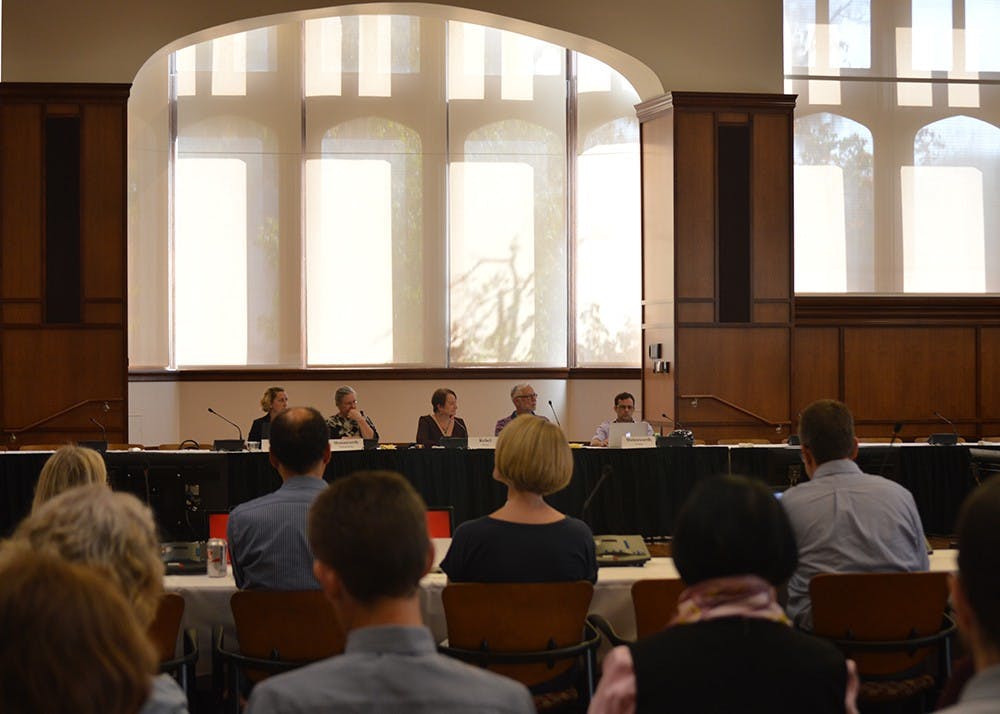The Bloomington Faculty Council discussed three major topics in its meeting on Oct. 3, including non-tenure track faculty issues, the results of the Collaborative on Academic Careers in Higher Education faculty satisfaction survey and revisions to the sexual misconduct policy.
Non-Tenure Track Faculty Issues
Nick Williams and Jonathan Trinidad, co-chairs of the non-tenure track task force, focused on the issue of non-tenure track faculty participation on the Bloomington Faculty Council. Of its 68 members, only three are non-tenure track members.
“The most important thing we can gather is the feeling of this group,” Williams said.
The non-tenure track falls into three different categories: lecturers, clinical appointments and research appointments. The task force was trying to achieve a proportional representation of non-tenure track faculty on the council in comparison with the percentage of the faculty population they make up. Currently, the council looks at proportionality of units instead.
Members of the council disagreed on the best way to integrate more non-tenure track faculty into the Bloomington Faculty Council. From talking to their colleagues, faculty members said the non-tenured track faculty was for proportional representation but the tenured track was not.
One member said shared governance needed the protection of tenure. Another said the non-tenure track faculty was being treated as second-class citizens.
The Bloomington Faculty Council ran out of time discussing this issue.
COACHE Survey Presentation
Eliza Pavalko, vice provost for faculty and academic affairs, presented the results for the Collaborative on Academic Careers in Higher Education survey, a survey about faculty satisfaction in different areas of the University. The results allowed for internal comparisons as well as comparisons to other universities.
Overall findings were that satisfaction was strong in areas such as benefits, policies and practices.
“Our goal is to make IU a supportive place for everybody,” Pavalko said.
The areas that showed a need for improvement were campus climate for underrepresented faculty, environment for associate professors and conditions for non-tenured track faculty.
Pavalko said underrepresented faculty did not show much of a difference in their feelings of support in work environments but rather in the cultural experience. She said John Nieto-Phillips, associate vice provost for faculty development and diversity is meeting with groups of faculty to work on this issue.
Associate professors are the least satisfied, Pavalko said. Because of this, she said a focus will be placed on improving mentoring and working with different organizations to figure out the gaps for this group.
Pavalko said there was a difference between how much interaction the non-tenure track faculty received and how much interaction tenured-track faculty and received. She said the issue will be looked into further.
Sexual Misconduct
Alex Tanford, faculty president, looked at a faculty board of review in the sexual misconduct policy. A five-member task force is now looking to reconsider how the Faculty Board of Review policy should factor in to IU’s sexual assault procedures in the event any future reports are made against faculty. Read more here.



